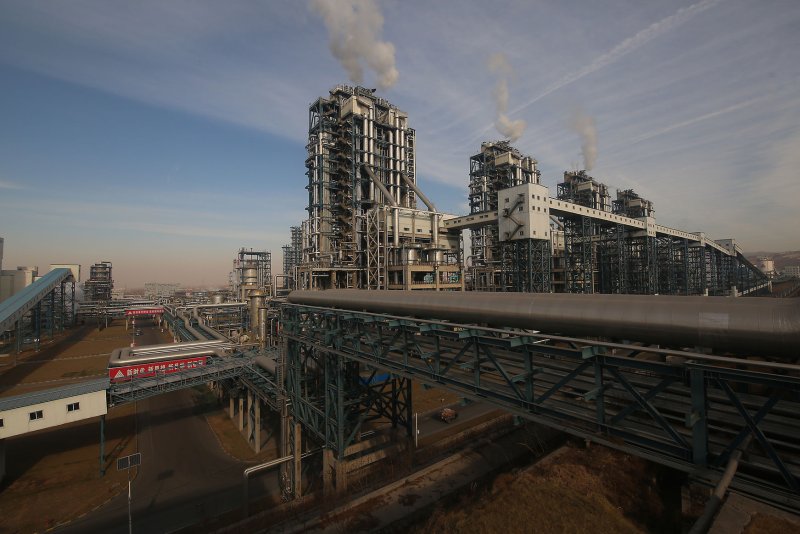Coal power still fuels 70 percent of China's energy production. File Photo by Stephen Shaver/UPI |
License Photo
Jan. 29 (UPI) -- China's pollution problems are well documented, but its government has made progress toward addressing many of them -- curbing particulate matter and smog in major cities, for example.
But according to a new study, China's efforts to curtail methane emissions have fallen short.
While China has dramatically expanded its use of renewable energy, it remains the planet's largest consumer of coal. As a result, China emits more methane than any other country.
In 2010, China enacted regulations requiring coal plants to either capture methane emissions or convert methane into CO2. Like carbon dioxide, methane is a greenhouse gas, which traps the sun's heat in Earth's atmosphere, causing global warming. But methane's greenhouse gas effect is significantly stronger.
To determine whether China's regulations made a difference, scientists analyzed spectral data captured by Japan's GOSAT satellite. The observations suggests little has changed over the last several years.
Methane emissions across China continue to grow.
"Our study indicates that, at least in terms of methane emissions, China's government is 'talking the talk,' but has not been able to 'walk the walk,'" lead researcher Scot Miller said in a news release.
Miller was formerly with the Carnegie Institution for Science, but now works at Johns Hopkins University. He and research partner Anna Michalak published their analysis of China's methane emissions this week in the journal Nature Communications.
Their analysis showed China's methane emissions increased 50 percent between 2000 and 2015.
"China had an aspiration and an opportunity to reduce its release of coal mining-related methane, but our analysis of satellite data shows business-as-usual emissions of this harmful greenhouse gas," Michalak said. "It's therefore unlikely that China's ambitious goals for reducing methane emissions from coal mining were met."
Last year, researchers determined China was responsible for a sudden rise in global CFC-11 emissions, a chlorofluorocarbon that eats the ozone layer and has a greenhouse gas effect.















